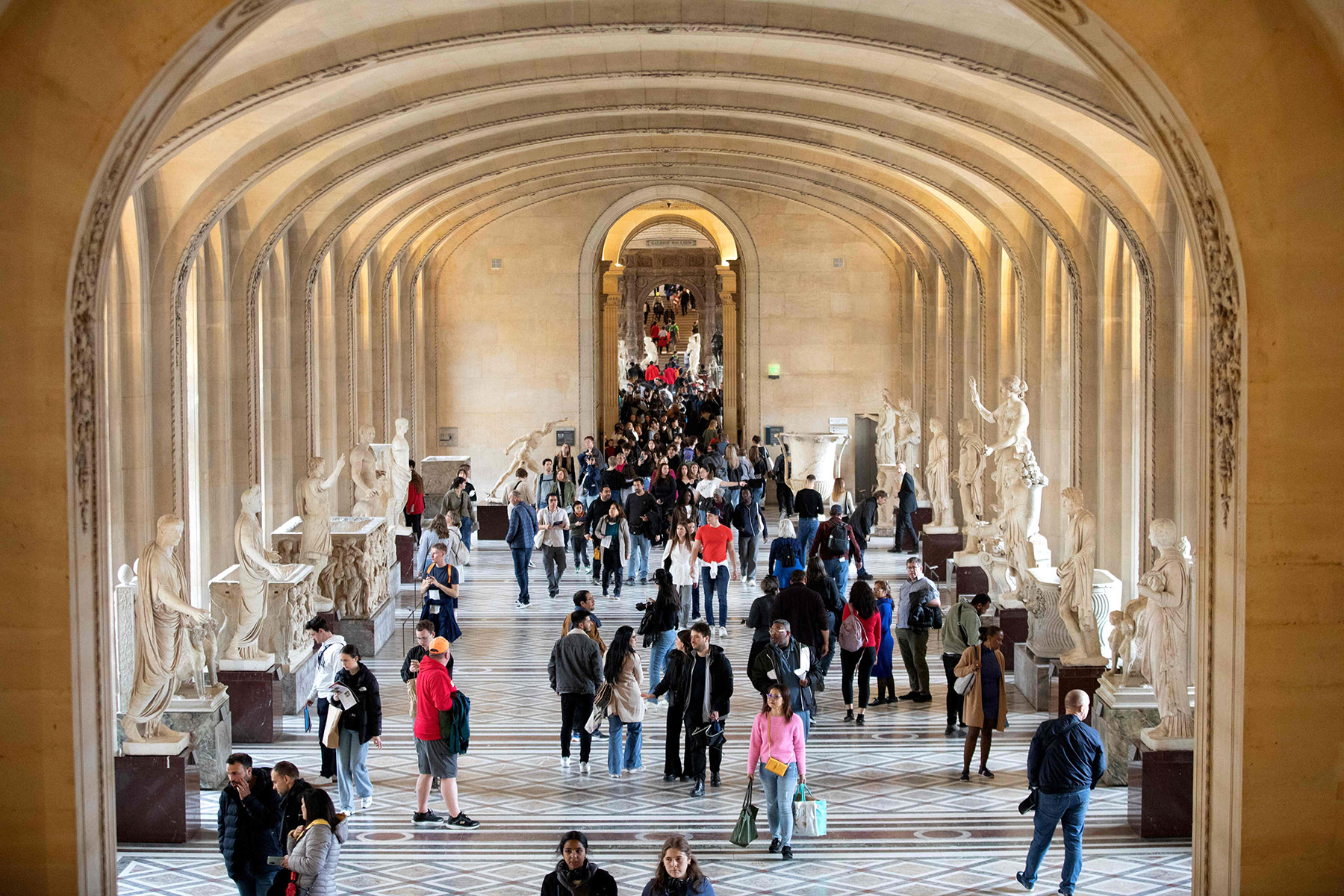
Chinese outbound tourists have shown growing enthusiasm for visiting museums overseas, and some of the most popular destinations include the Louvre Museum in Paris, the Grand Egyptian Museum in Cairo and the Erawan Museum in Bangkok, industry players found.
Some other international museums sought after by Chinese travelers include the Louvre Abu Dhabi, the British Museum, the Prado Museum in Madrid, Al Shindagha in Dubai, the National Museum of Luang Prabang in Laos and the National Museums of Kenya, according to Tuniu, a Nanjing, Jiangsu province-based online travel agency.
READ MORE: May Day air travel back in business
Chinese travelers have been increasingly venturing far out of the country, heading to some niche destinations such as Serbia, Morocco and Tunisia, fueled by more flight options and favorable visa policies of different countries.
"Visiting a museum can help travelers learn about the history of a city. Chinese consumers have indicated an increasingly strong interest in visiting museums, which serve as important places of cultural inheritance," said Xiao Peng, a researcher with the big data research institute of Qunar, a Beijing-based online travel agency.
During the May Day holiday that lasted from May 1 to May 5, the booking volumes of international flights and hotels on the platform both hit new highs, according to Qunar.
In particular, booking volumes of flight tickets from China to Saudi Arabia and Egypt more than tripled year-on-year, and booking volumes of flights to the United Arab Emirates, Turkey and Qatar jumped over 50 percent on a yearly basis, Qunar found.
Despite being affected by regional turbulence to some extent, the tourism industry in the Middle East has shown good growth momentum in the past year, becoming one of the fastest-growing regions in the world, according to the United Nations World Tourism Organization.
Globally, the number of international tourists visiting the Middle East reached 86.3 million person-time last year, growing 22 percent compared to the pre-pandemic period in 2019, the UNWTO said.
Hong Jianyi, a 70-year-old retiree from Beijing, and his family went on a holiday to Iran in late January, and the experience was beyond his expectations. He was hugely impressed by Iran's rich history and its friendly people during his trip.
Eyeing a great inrush of Chinese tourists, Iran has unilaterally granted a visa-free policy for China and trained dozens of Chinese-speaking tour guides since 2019.
Now, Iran is increasing the convenience for Chinese visitors at some of its museums, not least by offering Chinese versions of artifact introductions, said an Iranian museum official recently.
Hadi Mirzaei, director-general of the General Office of Museums in the Iranian Ministry of Cultural Heritage, Tourism, and Handicrafts, made the remarks in Teheran to announce the events and programs which were scheduled to be held in the country during the National Cultural Heritage Week from May 18 to May 24, but were called off after the demise of the nation's leader.
"We have prepared catalogs for Chinese tourists in their own language to enable them to gain more knowledge about Iran's culture while visiting the country's museums and sites," said Mirzaei.
ALSO READ: WTO chief economist: China an important driver of global trade
Mirzaei praised the Chinese government's policy of defining Iran as one of the top six priority tourist destinations for Chinese travelers. He noted that this policy has attracted many more Chinese visitors to the country since the beginning of the current Iranian calendar year, which started on March 20, compared to the same period last year.
From March 21, 2023 to Jan 20,2024, the number of Chinese tourists visiting Iran exceeded 54,000, and Chinese tourists spent nearly $1,000 on average during their stay in Iran, according to the Iranian Ministry of Cultural Heritage, Tourism and Handicrafts.
The ministry now plans to provide training in Chinese language and cuisine to Iranian hotel staffers and chefs. "China is the world's largest tourism market," said Moslem Shojaei, director-general for marketing and international tourism development at the ministry.
Xinhua contributed to this story.


